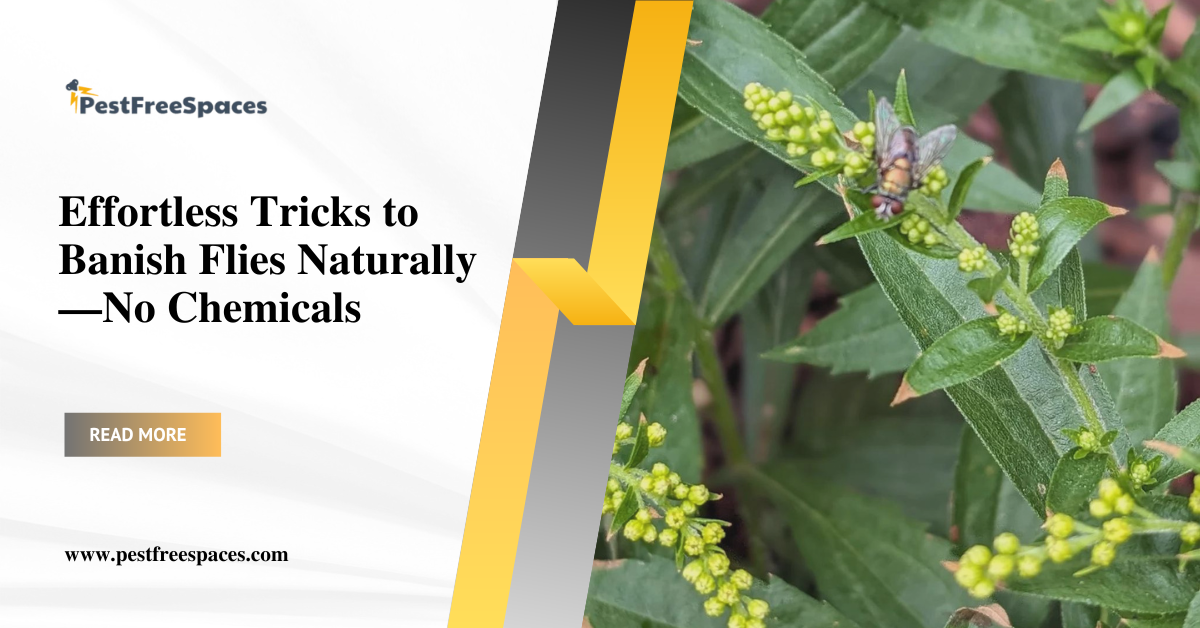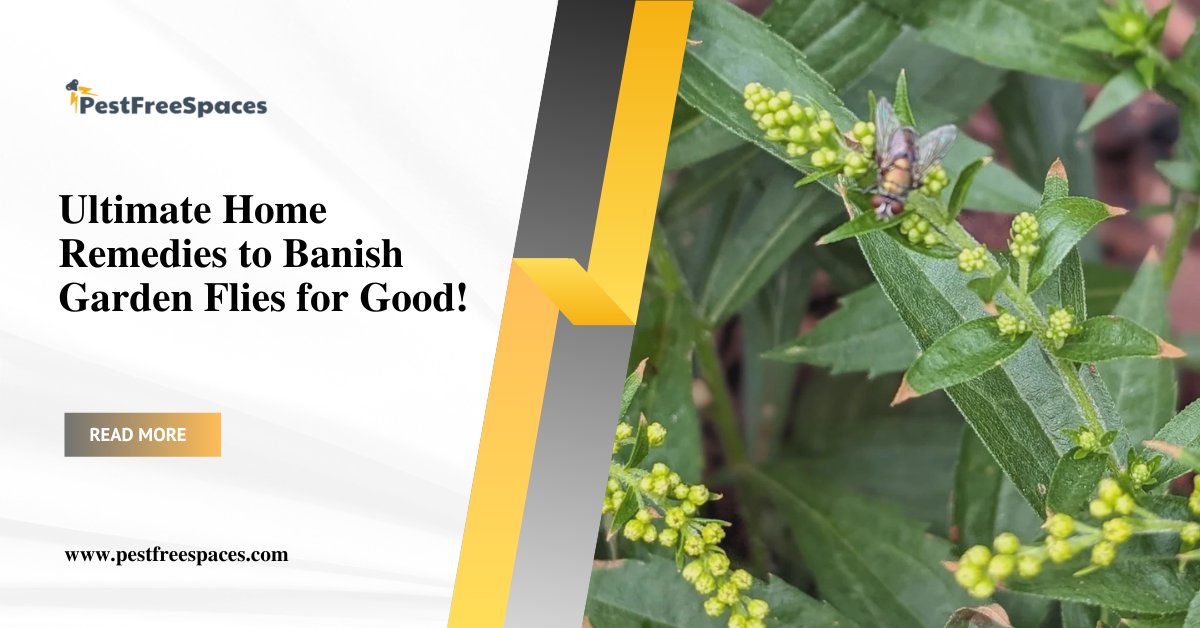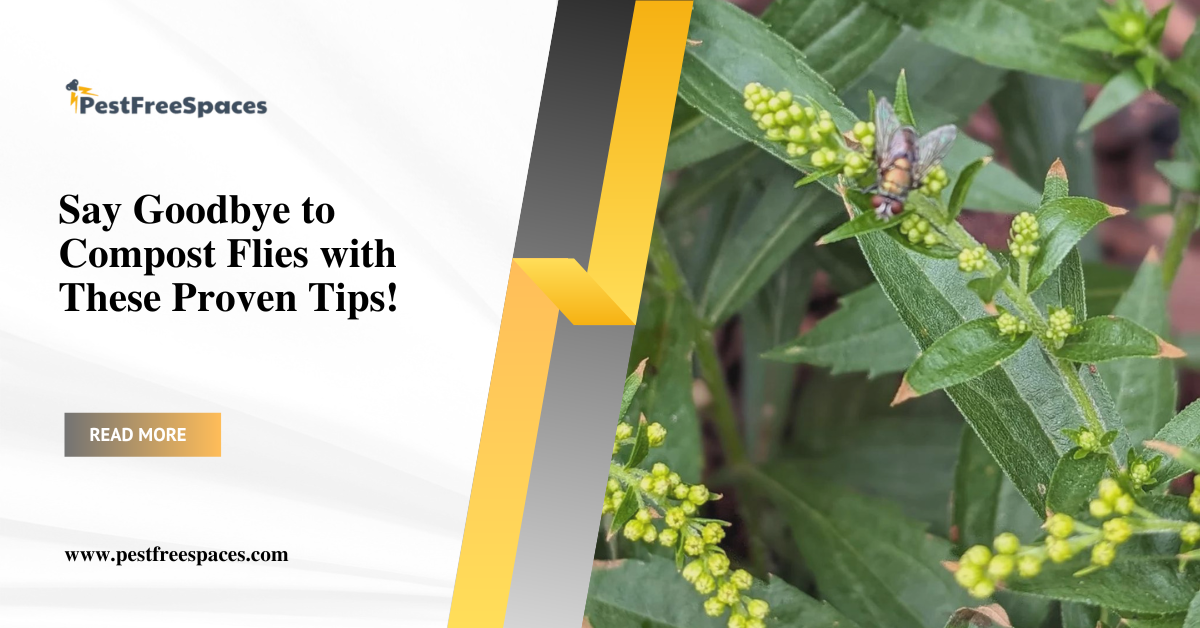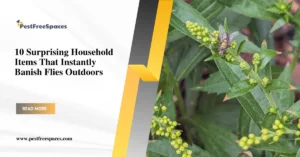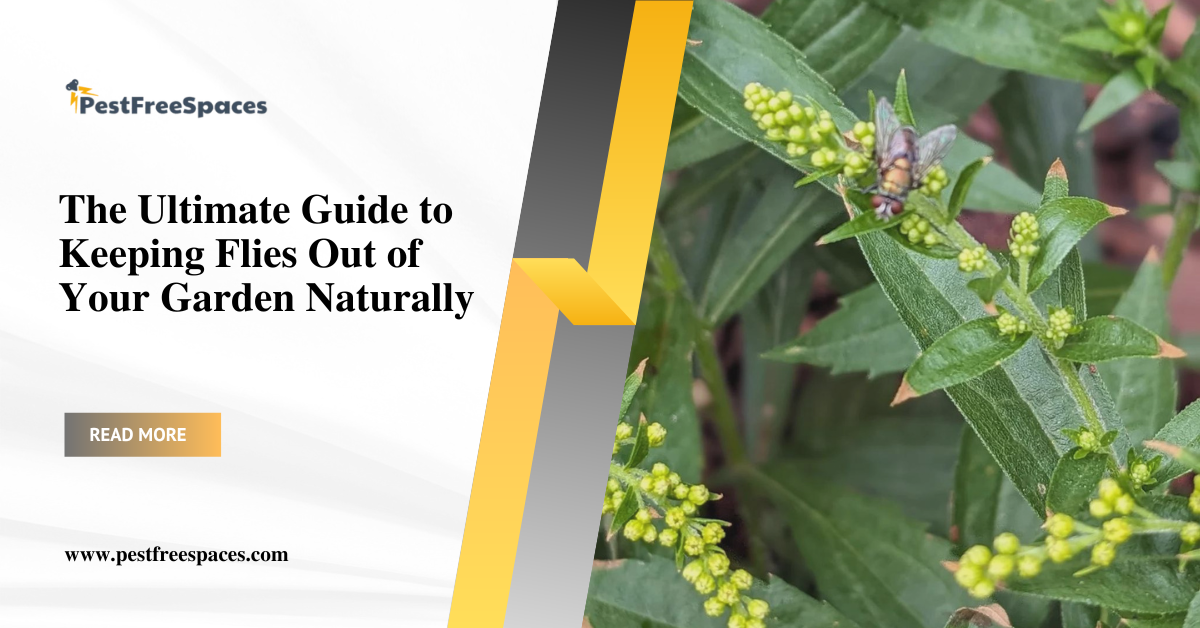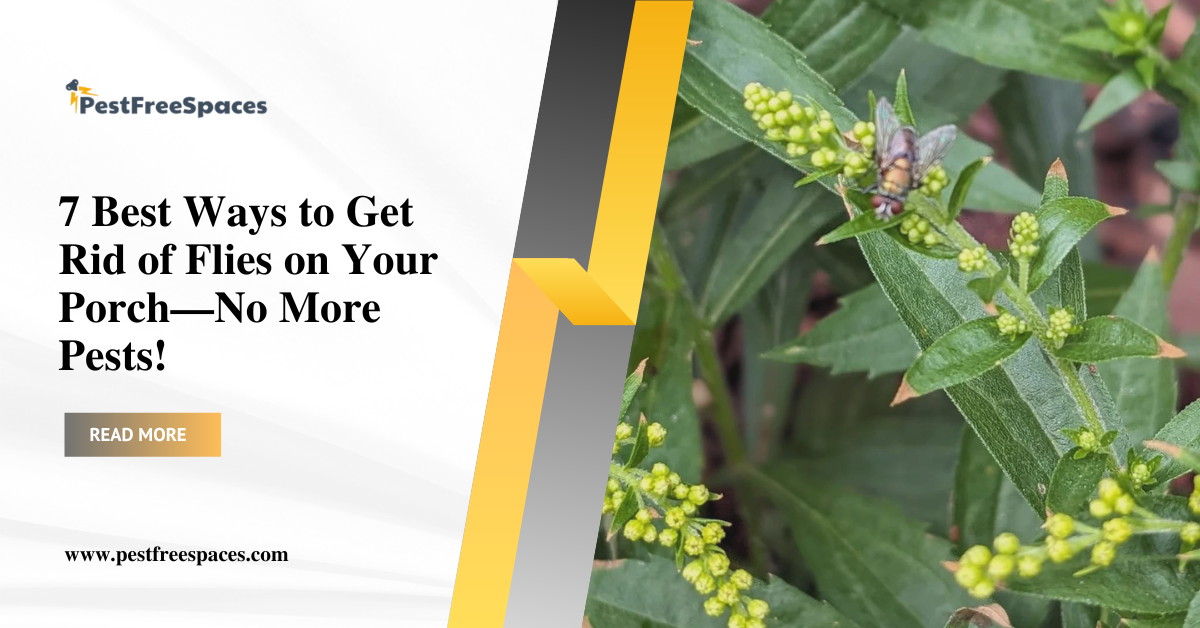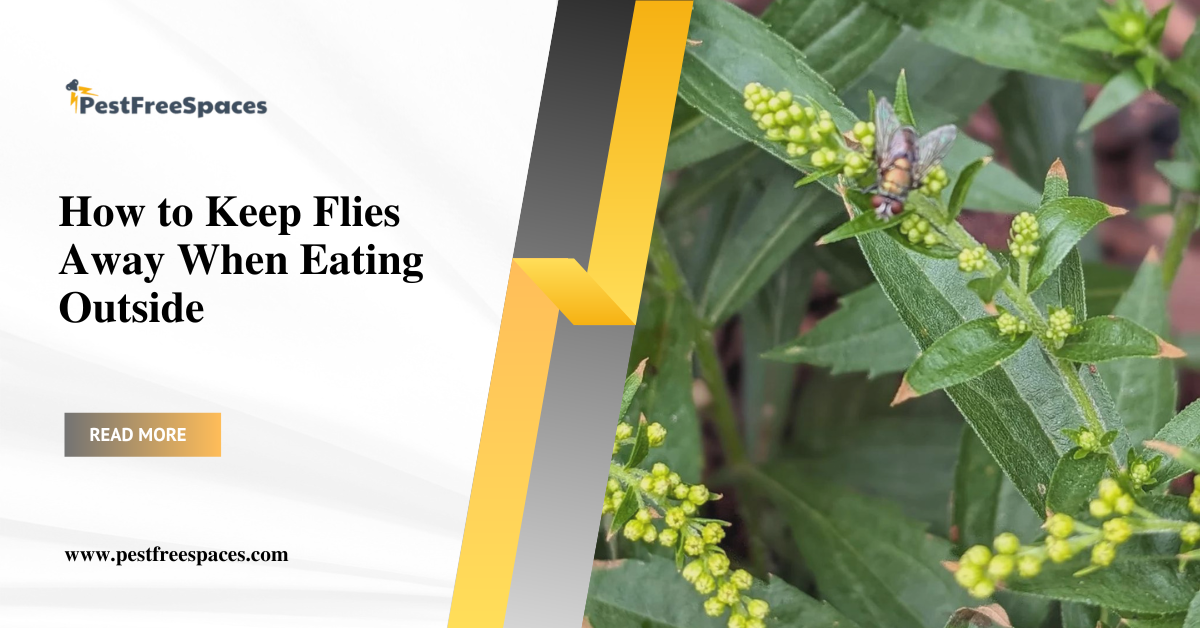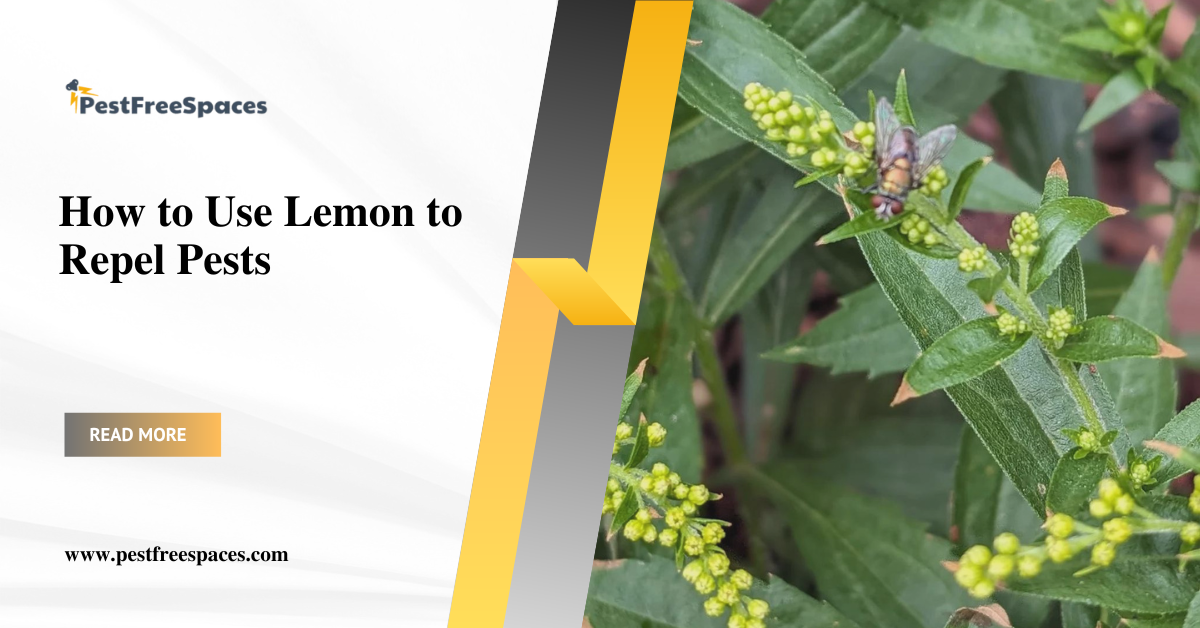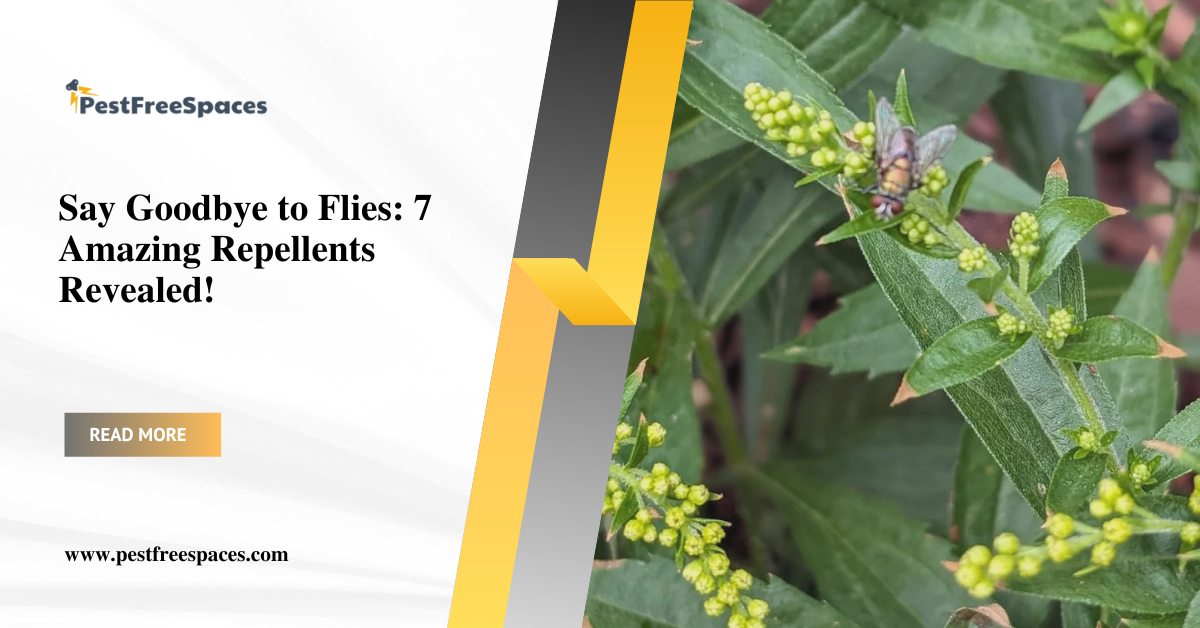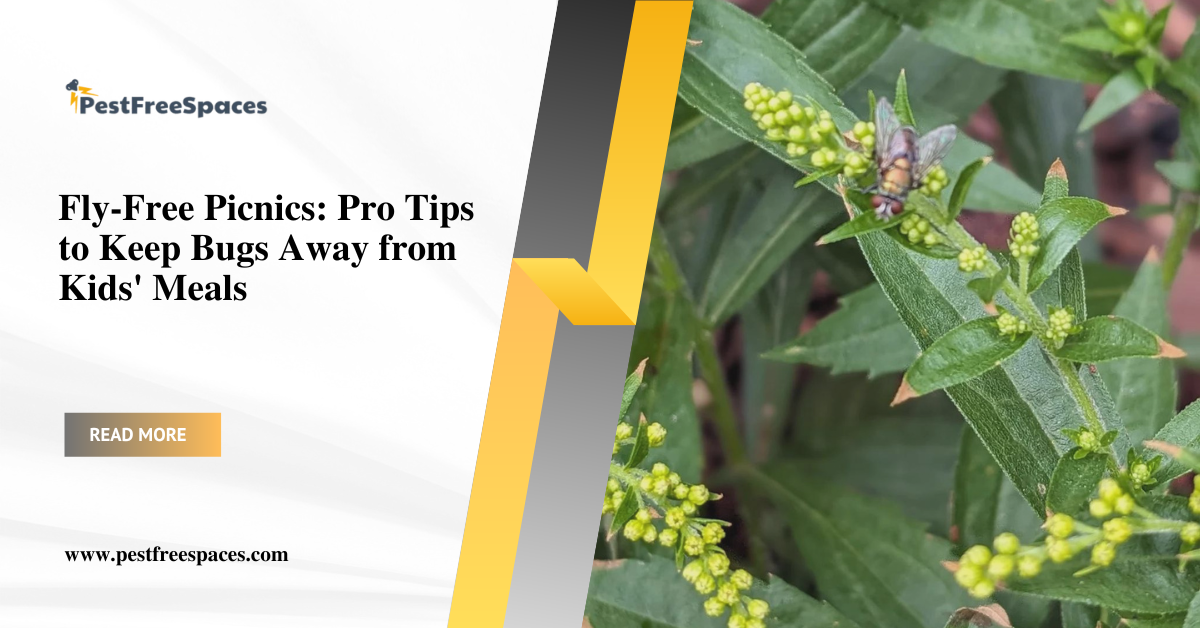Flies are more than just a buzzing nuisance in the garden; they can ruin outdoor gatherings, damage plants, and spread bacteria. But don’t worry there’s good news. You don’t have to turn to harsh chemicals to keep them away. There are plenty of natural solutions that work just as well, and they’re much safer for the environment. Let’s dive into how to naturally banish flies from your garden without the need for harmful sprays.
How to Naturally Banish Flies from Your Garden Without Chemicals

Why Flies Invade Your Garden
Understanding the Attraction
To get rid of flies, it’s important to know why they’re drawn to your garden in the first place. Flies seek out several things in an outdoor space:
- Food sources: Flies are attracted to fruits, vegetables, compost, and any organic waste. If you’ve ever left fruit out for too long or composted improperly, you’ve likely noticed the flies swarming.
- Moisture and standing water: Stagnant water, such as puddles or water in plant saucers, provides breeding grounds for flies. They’re always on the lookout for damp areas to lay eggs.
- Shelter: Tall plants, dense bushes, and moist, shaded spots in the garden offer flies perfect hiding places. These areas help them escape the heat and find safe spaces to multiply.
Identifying Common Garden Flies
Not all flies are the same, and knowing which kind is buzzing around your garden can help you deal with them more effectively:
- Houseflies: These common flies are usually found near garbage or compost bins. They’re larger and easily recognizable.
- Fruit flies: These tiny flies are attracted to overripe fruit and vegetables. They’re small but can multiply quickly, causing major irritation in a short time.
- Gnats and whiteflies: Both are smaller pests that love hanging around plants. They often go unnoticed until their numbers have grown significantly.

Effective Natural Remedies to Repel Flies
Plants That Naturally Repel Flies
One of the simplest ways to keep flies away from the garden is by using plants that naturally repel them. Certain plants give off scents that flies dislike, making them perfect for deterring pests. Consider planting the following:
- Lavender: Known for its pleasant smell, lavender is a powerful repellent.
- Marigolds: These vibrant flowers not only add color to your garden but also drive flies away.
- Basil: Handy in the kitchen and in the garden, basil can deter flies and enhance your meals.
For the best results, plant these around areas where flies gather. Grouping them together can boost their effectiveness. These are great plants to keep flies away outside without much effort.
Essential Oils as Natural Fly Deterrents
Essential oils can also serve as an excellent natural fly repellent outside. Oils like lemongrass, peppermint, and eucalyptus are especially effective at driving away flies. You can even create a DIY fly spray by mixing these oils with water. Here’s a simple recipe:
- 10 drops of lemongrass oil
- 10 drops of peppermint oil
- 2 cups of water
Pour the mixture into a spray bottle, and you’ve got a safe and effective way to repel flies. Use it around plants or seating areas. When people ask, what oils repel flies, this combination is often at the top of the list!
Citrus Peels: Nature’s Fly Repellent
Ever wondered, does lemon repel flies? The answer is yes! Flies hate citrus smells. Lemon, orange, or even lime peels can be scattered around the garden to naturally repel flies. The peels break down naturally, so this method is not only effective but eco-friendly too. Spread the peels near your plants or patio to create a barrier that flies won’t want to cross.

Natural Fly Traps You Can Make at Home
Vinegar Fly Trap
One of the easiest ways to naturally kill flies is by making a vinegar trap. You’ll need just a few simple ingredients:
- Pour apple cider vinegar into a small jar or bowl.
- Cover the top with plastic wrap and poke small holes in it.
The flies are attracted to the vinegar, but they can’t escape the jar once they’re inside. Place these traps around your garden in areas where flies are most active.
DIY Fruit Fly Traps
Another effective method to deal with fruit flies is using a DIY trap with overripe fruit. Cut up some fruit, place it in a jar, and cover the jar with plastic wrap (again, with small holes). The fruit will attract the flies, and they’ll get trapped inside the jar. This is a great way to control fruit flies without chemicals.

Garden Maintenance to Prevent Fly Infestations
Composting Tips to Avoid Flies
Composting is excellent for your garden, but it can also attract flies if done incorrectly. To avoid attracting flies, make sure to cover your compost bins tightly and balance green materials (like food scraps) with brown materials (like dried leaves). This reduces the smell that draws flies in.
Eliminate Standing Water and Moisture
Flies need water to breed, so eliminating standing water is crucial to keeping flies away from your garden. Be sure to empty containers that collect water, fix drainage issues, and consider adding sand or gravel in areas where water tends to collect.
Encouraging Natural Predators to Control Flies
Beneficial Insects and Birds
Introducing natural predators is a clever way to reduce fly populations. Birds, ladybugs, and spiders all feast on flies. Planting flowers like sunflowers or daisies can attract these helpful creatures. In return, they’ll help keep flies at bay.
Predatory Plants
For something a bit more unusual, carnivorous plants like Venus flytraps or pitcher plants can make a great addition to the garden. These plants naturally catch and eat flies, acting as both pest control and conversation starters!

Other Organic Fly Control Methods
Use of Outdoor Fans to Deter Flies
Flies are weak fliers, so a steady breeze can keep them from landing on your outdoor seating or picnic table. Setting up an outdoor fan in areas where you plan to eat or relax will help keep flies away from food outdoors. It’s a simple trick, but it works surprisingly well!
Garlic as a Fly Repellent
Garlic has long been used as a natural repellent for pests. A homemade garlic spray is easy to make and effective against flies. Blend a few garlic cloves with water, strain the mixture, and spray it around your garden. The strong odor keeps flies at a distance, while the garlic breaks down naturally without harming your plants.
Common Mistakes That Attract Flies
Overripe Fruits and Uncovered Food
Leaving fruit on the ground or keeping food uncovered is a surefire way to attract flies. Pick up fallen fruits quickly, and cover any food during outdoor meals to prevent flies from making a beeline for your garden.
Poor Waste Management
Unsealed trash or waste that’s stored too close to your garden will draw in flies. Always use sealed containers and keep waste as far away from the garden as possible to minimize fly activity.
People Also Asked Common Questions About Natural Fly Control
Does Lemon Repel Flies Effectively?
Yes, lemon is an effective natural repellent. The strong citrus smell disrupts a fly’s ability to sense food, making lemon peels or lemon essential oil an excellent choice for keeping flies away.
What Oils Repel Flies best?
Oils like lemongrass, peppermint, and eucalyptus are among the best for repelling flies. These oils can be mixed with water to create a fly deterrent spray for the garden.
Are there any Plants I should avoid planting that attract Flies?
While most plants won’t attract flies, be careful with plants that produce overripe fruit or vegetables. Flies are drawn to the sugars in overripe produce, so timely harvesting is key.
Can Natural Methods really replace Chemical Fly Repellents?
Absolutely. Natural methods like fly-repelling plants, essential oils, and DIY traps can be just as effective as chemical repellents, without the risks to health or the environment.
